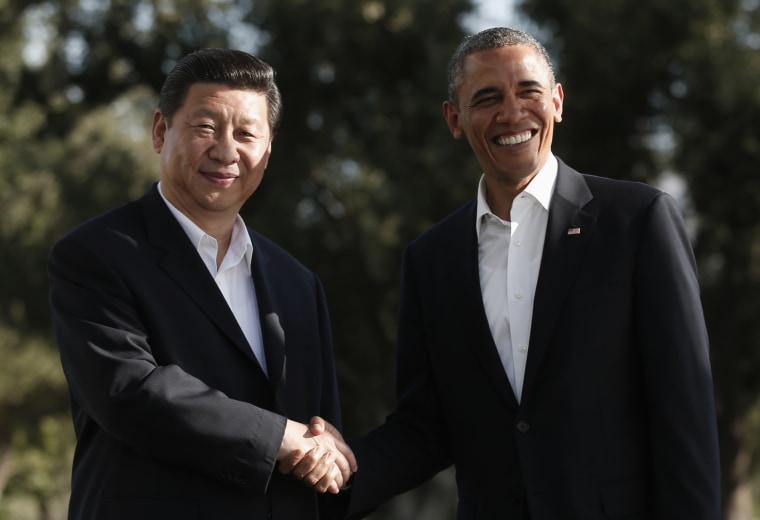President Obama dodged questions linking China to cyberespionage attacks against the U.S., telling reporters midway through a weekend retreat with Chinese President Xi Jinping that governing protocols on cybersecurity issues are "uncharted waters" the two nations must explore.
In what Obama called a "very constructive conversation," the two leaders met for over three hours Friday in the first of a two-day summit in Rancho Mirage, Calif. The U.S. president said talks on cybersecurity were only at the "40,000-foot level," and that more intensive discussions were to come.
The summit comes amid growing security concerns from reports earlier this year that a series of cyberattacks launched against U.S. business and infrastructure were sourced back to China. Both Obama and Xi on Friday skirted away from linking the hackers to the Chinese government. Instead, the two leaders underscored the global threat of cyberattacks and the growing need to regulate computer hacking.
"When it comes to those cybersecurity issues like hacking or theft, those are not issues that are unique to the U.S.-China relationship," Obama said. "Those are issues that are of international concern."
Speaking through an interpreter, Xi said China had also been the victim of hacking and that cybersecurity remained a major concern.
Obama went on to address his administrations surveillance policies on the home front after reports on Wednesday uncovered a secret program that allows the National Security Agency (NSA) to collect the phone records of millions of Americans. A separate report out a day later unveiled an NSA and FBI program code-named "PRISM" that allows the government to tap into the servers of major U.S. Internet companies.
Earlier in the day on Friday, Obama defended the phone surveillance program by insisting it helped prevent terrorism. And following his initial meeting with President Xi, Obama told reporters that the NSA programs monitoring Americans were "different from these issues of theft and hacking" in cyberattacks.
"We're going to have to find ways to deal with this big data in ways that are consistent with our values; in ways that protect people's privacy, that ensure oversight, and strike the right balance," Obama said.
